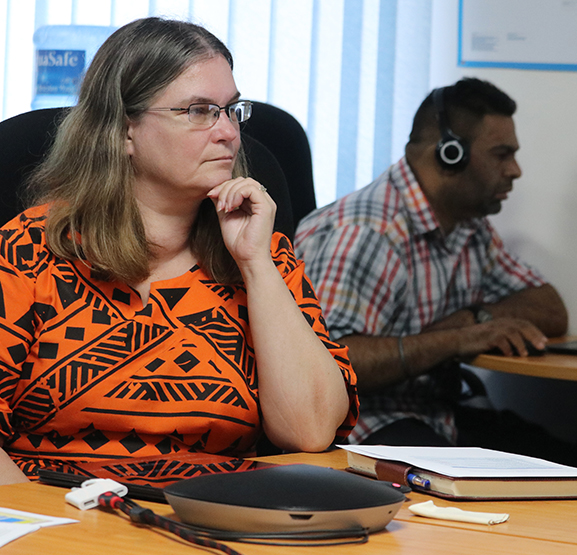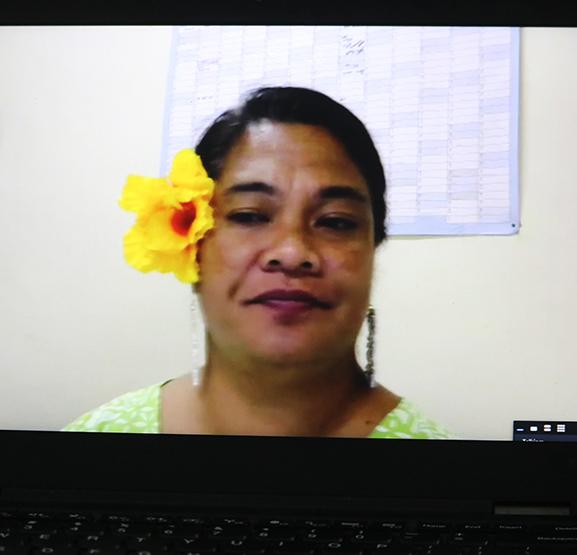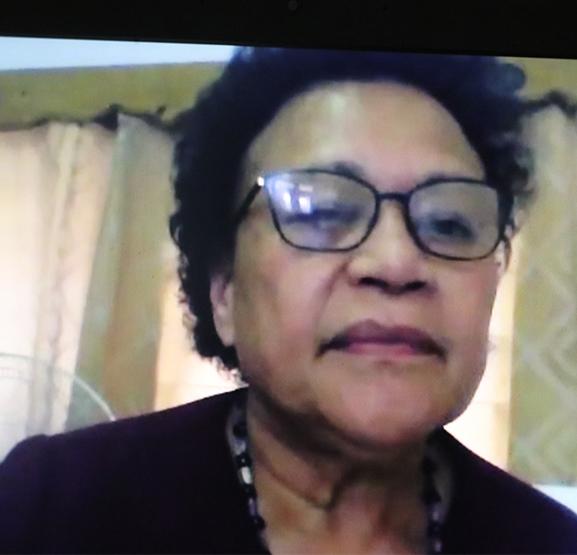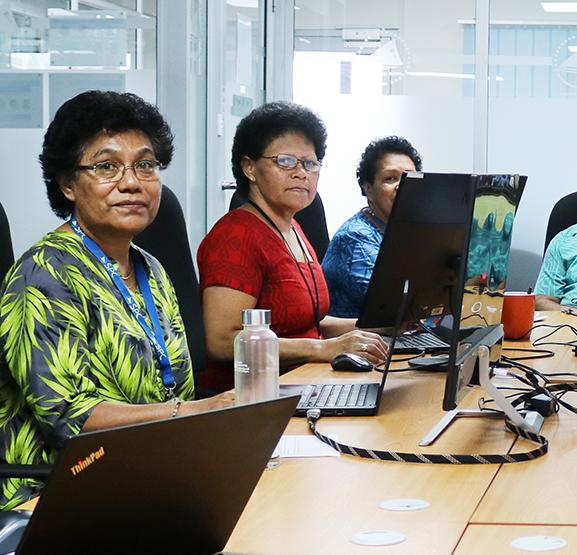
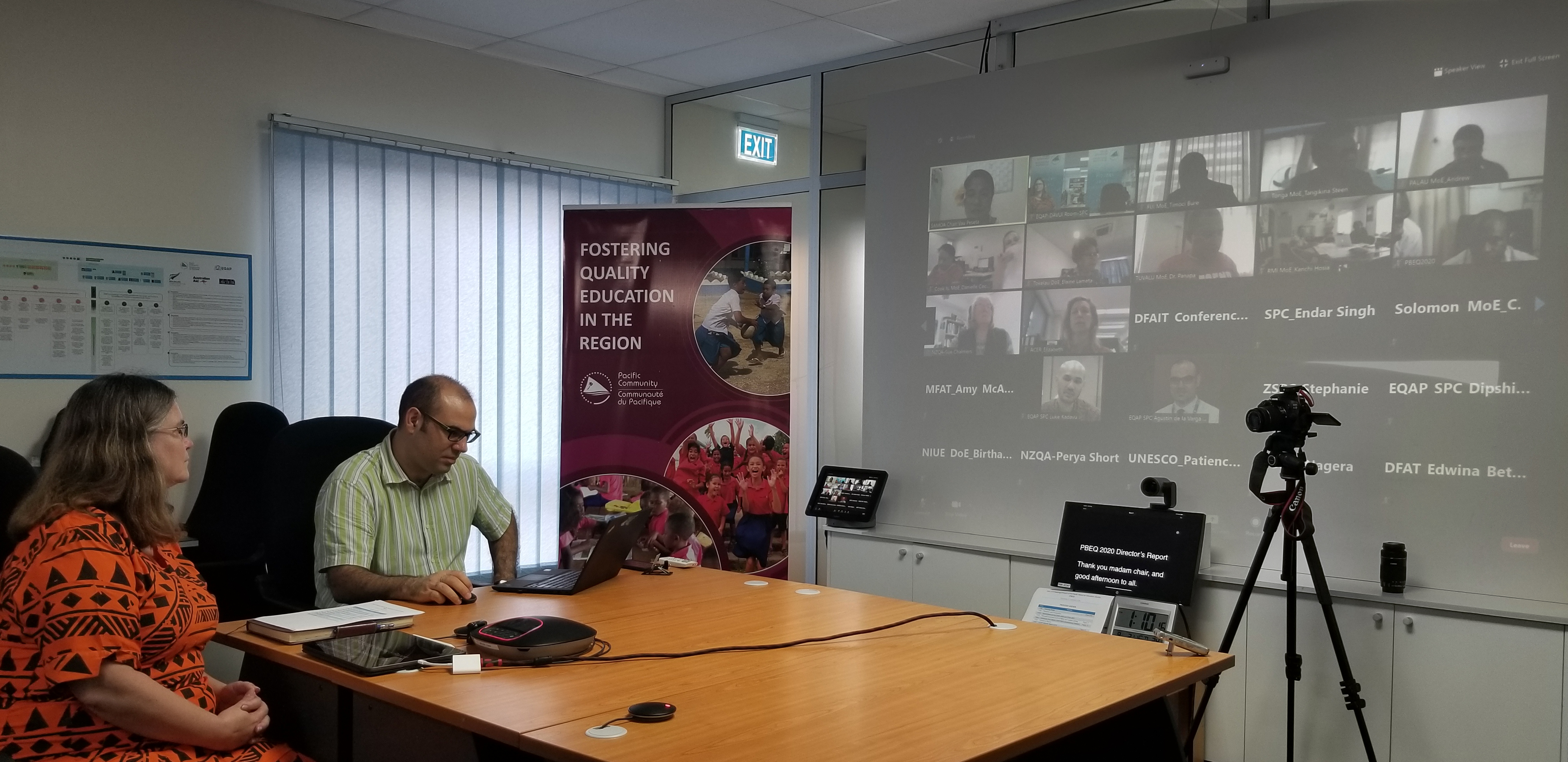
Dr Michelle Belisle presents the 2020 Director's Report to the PBEQ
Thank you Madam Chair, and good afternoon to all.
The 2020 Director’s Report to the PBEQ is an opportunity for the EQAP director to update the board on the highlights of the year that has passed and to look forward into the current year. In 2020, that all looks a bit different. Today marks our first ever formal virtual PBEQ meeting and since we last met in March 2019, almost 18 months ago, a great deal has transpired.
When we last met, the board discussed the EQAP Business Plan which, at the time, was brand new, and as the outcomes from that meeting show, the plan was endorsed. The plan, which runs from 2019 through 2022 is structured around EQAP’s support for quality education in the Pacific, particularly as it relates to the national priorities of the members as well as the regional priorities identified under the PacREF. There are three key strengths to the business plan
- its relevance in terms of alignment with national education sector and strategic plans, the regional education framework and SDG4.
- The programmatic funding support provided by our partners New Zealand MFAT and Australia DFAT allows flexibility in delivering on the business plan outputs and outcomes
- The technical partnership with the Australian Council for Educational Research (ACER) that provides for quality assurance, strategic support and capacity building within EQAP as well as to the region
I am very happy to report that the first 18 months of EQAP work under the business plan have shown progress towards the four high level outcomes and within most of the key result areas. The EQAP results report that has been shared with you provides further detail and the individual country level reports on EQAP work with your education systems and partners dig even deeper into how that work has been carried out. The PILNA 2018 results have been report, data workshops held and dissemination visits made to countries to share the results and conduct workshops. PILNA 2021 is getting underway with item development carried out and field trials ready to start next week in 13 countries. The Qualifications advisory board made up of the heads of national quality assurance agencies met in November and clear direction with respect to micro-qualifications, support to national authorities and the role of the regional agency was provided. The South Pacific Form Seven Certificate program was reviewed and ongoing strengthening to the program has occurred. 2020 has the highest ever enrolment in the program with just over 1400 students participating. The newly formed Education Data team has worked with many education ministries in the region supporting EMIS efforts, statistical reporting and calculating of national, regional and global indicators. These are just some of the activities that have transpired since we last met.
Why do I mention all this now? As we are all aware, 2020 has been an unusual year in many respects and that extends to the work we engage in at EQAP. Without the combination of a clearly defined business plan and the work plan that comes out of it, the generous support and the confidence of our donor partners MFAT and DFAT, the technical expertise of ACER and your support as PBEQ members, we would have been hard pressed to move work forward. Instead, we have been able to liaise with you and your officers in various ways: an email/online survey “extraordinary session” of the PBEQ in March, Zoom teleconference meetings to share country-level reports for 2019 and to update and reconfirm plans for the second half of 2020 in July and numerous communications back and forth with your operational teams within ministries. This has allowed flexibility and responsiveness to member priorities and revisions to the work plan to stay on track towards the achievement of the business plan outcomes.
As we move into the last months of 2020, we will continue to work with you and your officers. There are several regional workshops and training events coming up in the next three months and you will have been receiving the invitations to those through the normal channels, via your foreign affairs contacts. Because these events are virtual, in many cases there are benefits as more of your teams can participate as there are no travel expenses involved. We have been developing new ways of delivering virtual workshops and those efforts continue as we work to incorporate Moodle, a learning management system, collaborative tools like Conceptboard, Miro, SharePoint and Trello, interactive response tools such as Kobo Toolbox and of course video conferencing tools such as Zoom and MS Teams into our repertoire of delivery modalities.
We look forward to continuing to work with members and partners to support national and regional efforts in the coming months and while we know that eventually we will all meet again physically, it is clear that the current travel restrictions, while not desirable, have opened the door to many more ways to work with education systems across the Pacific.
